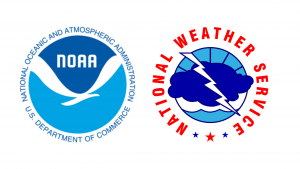
The National Weather Service, or NWS, is an office of the National Oceanic and Atmospheric Administration, NOAA, which sits in the U.S. Department of Commerce. The connection to the Department of Commerce is sensible – it’s estimated that one-third of the U.S. economy is sensitive to weather and climate.
The mission of the National Weather Service is to “provide weather, water, and climate data, forecasts, warnings and impact-based decision support services for the protection of life and property and enhancement of the national economy.”
The roots of the NWS go back to Feb 9, 1870, when U.S. President Ulysses S. Grant signed a joint resolution of Congress into law establishing the Weather Bureau of the United States. It was originally placed within the U.S. Army Signal Services’ Division of Telegrams and Reports for the Benefit of Commerce. Twenty years later, on Oct. 1, 1890 at the request of President Benjamin Harrison, Congress passed a law transferring the meteorological responsibilities of the Signal Service to the newly created U.S. Weather Bureau, housed in the Department of Agriculture. The Weather Bureau became the National Weather Service in 1970 with the creation of NOAA.
The NWS and NOAA are incredible public goods. The NWS provides weather forecasts, warnings, and climate data across the U.S. and exchanges that information with weather services around the globe. The NWS and NOAA weather observations and forecasts are publicly available at no cost. Their forecasts are accurate enough that we use them daily to schedule outdoor activities, adjust travel, wear clothes appropriate for conditions and plan for impending storms. These forecasts help to save lives.
Commercial weather companies use this public data along with private and proprietary weather data and models to create industry-specific weather forecasts. Publicly available and paid weather services complement one another and keep our nation informed and prepared for coming weather events.
Steve Ackerman and Jonathan Martin, professors in the UW-Madison department of atmospheric and oceanic sciences, are guests on WHA radio (970 AM) at noon the last Monday of each month. Send them your questions at stevea@ssec.wisc.edu or jemarti1@wisc.edu.

